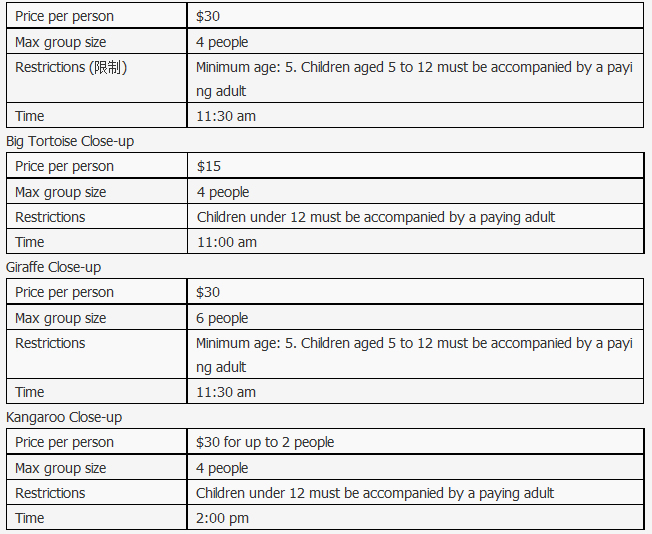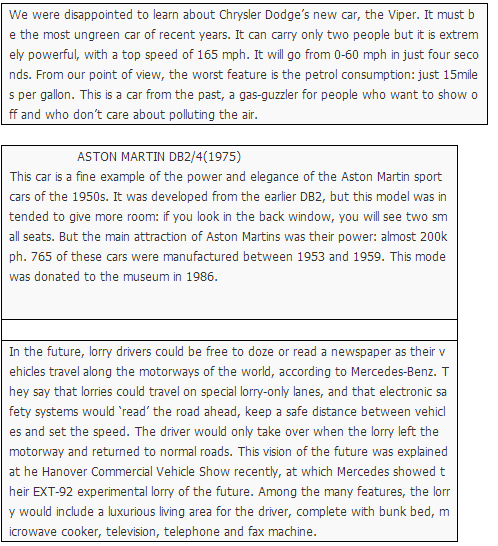
科目: 來源: 題型:閱讀理解
Melbourne Zoo’s Close-up Visits will bring you face to face with some of our zoo’s most popular animals.
Each experience includes a 6×8 photograph, taken by one of our professional photographers, to help you keep the memory of your visit to Melbourne Zoo.
Please note: The price of a Close-up Visits ticket does not include entry to Melbourne Zoo.
Meerkat Close-up
Bookings Information
● Bookings can be made by calling Zoo Photos on 0392859406.
● Bookings can be made on the day by visiting Zoo Photos from 9:30 am.
● A Zoo Photo Animal Experience does not include entry to Melbourne Zoo.
Terms and Conditions
● Group size and restrictions are needed to pay attention to.
● The photographer have the right to stop any experience at any time for reasons relating to animals’ health or visitors’ bad behavior.
查看答案和解析>>
科目: 來源: 題型:閱讀理解
查看答案和解析>>
科目: 來源: 題型:閱讀理解
查看答案和解析>>
科目: 來源: 題型:閱讀理解
查看答案和解析>>
科目: 來源: 題型:閱讀理解
查看答案和解析>>
科目: 來源: 題型:閱讀理解
查看答案和解析>>
科目: 來源: 題型:閱讀理解
查看答案和解析>>
科目: 來源: 題型:閱讀理解
查看答案和解析>>
科目: 來源: 題型:閱讀理解
查看答案和解析>>
科目: 來源: 題型:閱讀理解

查看答案和解析>>
湖北省互聯(lián)網(wǎng)違法和不良信息舉報平臺 | 網(wǎng)上有害信息舉報專區(qū) | 電信詐騙舉報專區(qū) | 涉歷史虛無主義有害信息舉報專區(qū) | 涉企侵權(quán)舉報專區(qū)
違法和不良信息舉報電話:027-86699610 舉報郵箱:58377363@163.com